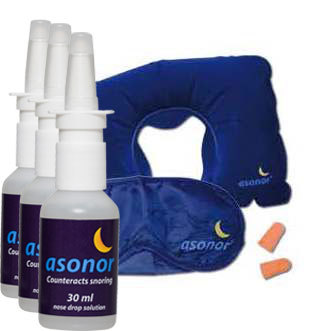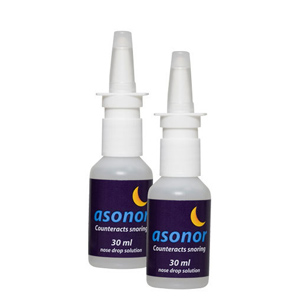There are plenty of pictures of men snoring while their bed partners lie awake and wide-eyed next to them while they sleep and do their chainsaw impersonations. All kidding aside, statistics show that men are nearly twice as likely to snore compared to women. Nearly everyone snores occasionally, whether it’s due to allergies, a cold, or drinking more alcohol than they should. However, the number of chronic or habitual snorers is shockingly high. In fact, 40% of adult males snore compared to 24% of adult females.
Common Causes of Snoring
There an extensive number of factors that can cause snoring ranging from anatomical variations that adversely affect a person’s airway to drinking alcohol and smoking. Snoring results when the soft tissues found in the upper airway begin vibrating due to a blockage or obstruction of normal airflow. The factors that commonly contribute to a person’s snoring include:
- allergies and colds
- being overweight or obese
- deviated septum or injuries to the nose that block airflow
- drinking alcohol
- larger than normal soft palate or uvula
- medications that cause nasal passage dryness and irritation
- muscular weakness in older individuals
- nasal polyps
- sleeping on your back
- smoking tobacco
- taking sedatives
Because of the differences in neck and throat structure as well as hormone factors, men are more likely to snore than women. Furthermore, when it’s associated with blocked or obstructed airways, snoring has been linked to serious health conditions such as heart disease and hypertension (high blood pressure). As per statistics, even today more men smoke and drink as compared to women, chances of males snoring is higher.
Snoring And The Gender Difference
One of the key reasons for the prevalence of snoring among males is their anatomical differences from women. Basically, the male airway is primed for snoring. Research has clearly shown that the structure of men’s airways has 3 crucial differences when compared to women’s:
- Fat build-up on the neck – men often gain tissue on those areas that cause snoring. This increases the risk of the airway collapsing when there is more weight around the neck. While obesity increases the risk of snoring, men and women distribute fatty tissue differently. This influences snoring patterns. Men typically add more weight to their chest and neck areas while women tend to gain fat on their buttocks, hips, and thighs.
- More soft palate tissue – the soft palate plays a significant role in generating the sound that snoring makes. Additionally, the male soft palate has a thicker cross section which means there is more tissue to vibrate and make noise. When they smoke, there is constant inflammation and thickening of the throat tissue, which enhances the risk of habitual snoring. Thus, it has been seen that there is a higher noise decibel when men snore as compared to women.
- Upper airway collapses more – another factor is how prone the male upper airway is to blockage and obstruction. The vulnerable area between the epiglottis and hard palate is larger in men than women. Consequently, there’s a larger amount of tissue that isn’t supported and relaxes while you sleep.
Snoring is also linked to the male hormone testosterone. Although the primary function of the male hormone is the development and maintenance of reproductive tissue, it can also play a role in snoring.
Female Hormones Protect Against Snoring
Conversely, while the male sex hormone increases the risk of snoring, female sex hormones have the opposite effect and actually protects against snoring. Here are 3 key factors to be aware of regarding female hormones and snoring:
- Less relaxation of tongue muscles – along with estrogen, progesterone enhances the ability of the tongue muscles to contract. This reduces the likelihood of it relaxing and falling into the airway which creates a blockage.
- Menopause elevates the risk of snoring – menopause causes a rapid decline in the female sex hormones. Therefore, the likelihood of developing sleep apnea and snoring issues increases over time. Thus, women over the age of 50 years tend to snore more than women in the 20s and 30s.
- Steady ventilation – pregnancy elevates the amount of progesterone that is present which in turn promotes steady ventilation. Consequently, the drop in airflow is less pronounced and the soft airway is less prone to collapsing during sleep. Another reason is gaining weight during pregnancy that increases the chances of snoring temporarily.
In addition to the above, chronic or habitual snoring is more common than sleep apneas. However, twice as many men suffer with this condition as women do, but then again, 8 times as many men are diagnosed compared to women.
Getting Treated For Snoring
In addition to disrupting your sleeping partner and hindering the quality of their sleep, snoring may be indicative of a more serious underlying issue such as sleep apnea. If your partner has continuously complained or been disturbed by your snoring, it may be time to speak to your doctor or a sleep specialist about your treatment options. On one hand it could be a matter of lifestyle changes such as avoiding alcohol, losing weight, or quitting smoking. Having an active lifestyle is equally important while cutting down on dairy products helps some people slow down their snoring.
One the other hand it may be necessary to wear an oral appliance that makes it easier to breathe or undergo a surgical procedure to correct anatomical issues that’s been causing your snoring. You might want to consider a nasal spray such as Asonor Anti-snoring Solution to alleviate or reduce your snoring episodes. It tightens your muscles in the throat and ensures that the there is loose tissue that a vibrator. It widens the airways and helps you breathe better which reduces snoring.
To learn more about this tested and proven product, send an e-mail to [email protected] or read more about it by clicking here.







